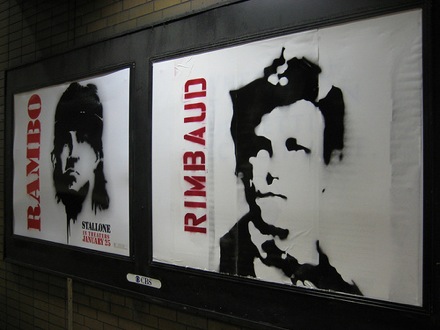poems on the other hand... there are tons. i guess that's because you have to actually sit down and participate, unlike a song that can creep its way into your awareness. i like poetry, and reading in general, really, because you have to be so present. and at the end, you look at this thing that you were so absorbed in and it's just ink on a page, not like a movie or a play or something else that pulls you in through an (awesome, but) much more elaborate structure.
here's some of the poems that i remember my first encounter with...
- the nails by w.s. merwin -- once at a reading someone requested that merwin read this poem, and he refused, saying that it was too painful to read aloud. don't read this poem if you're going through a break up. i'm jus' sayin'.
- keeping things whole by mark strand -- a teacher showed me this poem when i was taking a poetry class one summer in high school. it changed my idea of what a poem was.
- directions to the brothel (click around, you'll find it... someone made a video that scared me when i watched it with the lights off.) by michael dumanis -- michael is the teacher who showed me keeping things whole.
- 13th dream song by john berryman -- i can't believe i haven't done a berryman post on this blog yet. just wait. it's coming.
- author's prayer by ilya kaminsky -- this link is sweet because you can hear him reading it. ilya is deaf and has a russian accent. he can be sort of hard to understand, so when he read at sarah lawrence he passed out copies of his book so that people could follow along with him. he reads like a rabbi and when everyone follows along it felt like a religious experience.
uhhh i guess that's enough for now. you guys should read those poems.
oh, also, i'm reading here (school) today (tuesday) at 8 pm, in slonim house. it's a 6x6 featuring 6 slc students and 6 students from columbia university, all reading for 6 minutes each. cute, right?



